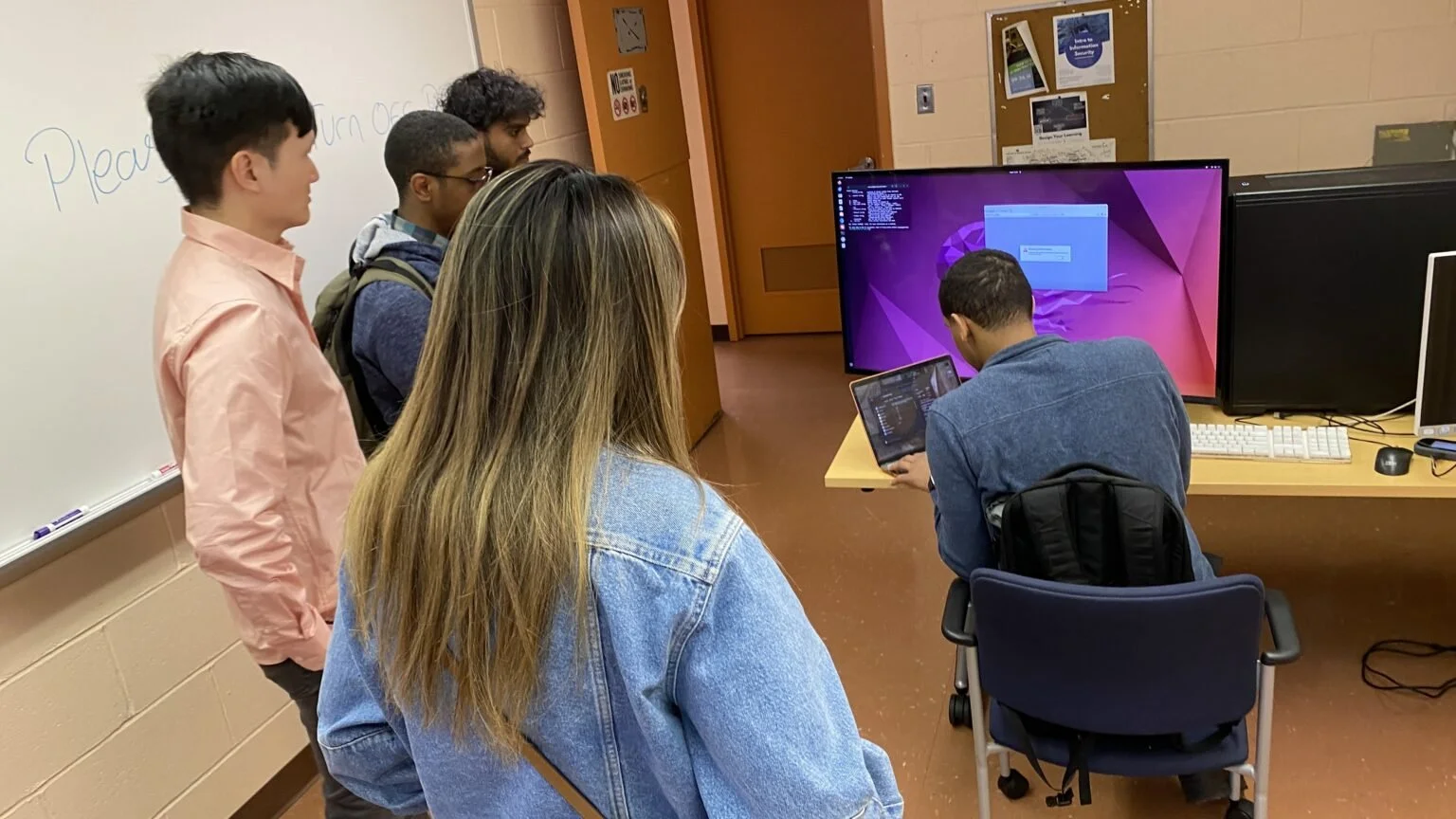Deepen your understanding of Blockchain
DIVING DEEP INTO ETHEREUM: A HANDS-ON WORKSHOP AT TIQC
On May 10, 2024, the Tech Incubator at Queens College (TIQC) launched the first in a thrilling series of workshops aimed at demystifying the world of Ethereum nodes for students and tech enthusiasts. Led by Queens College student and experienced blockchain developer Baldwin Cepeda, the session offered both a theoretical and practical exploration of blockchain dynamics.
Who is Baldwin Cepeda?
Baldwin Cepeda, a pivotal member of the NYC Node project backed by the Mayor’s office and the New York Economic Development Corporation (NYCEDC), brought firsthand insights from his extensive work in setting up and deploying Ethereum nodes.
Understanding Ethereum Nodes
Ethereum nodes are crucial components of the blockchain network, acting as individual points that validate transactions and states within the network. These nodes vary primarily in three types:
● Archive Nodes: Store the entire history of the blockchain.
● Full Nodes: Hold data about the state of the network at recent points.
● Light Nodes: Provide quick access to basic blockchain information, relying on full nodes for more detailed data.
Building Your Own Node
Baldwin likened building an Ethereum node to assembling a personal computer—both challenging and rewarding. He detailed the steps involved in setting up different types of nodes, emphasizing the importance of nodes in maintaining the integrity and security of the blockchain network.
Interactive Node Architecture Tutorial
Participants explored the dual-layer structure of Ethereum nodes:
● Execution Layer: Responsible for processing transactions.
● Consensus Layer: Handles block creation and finalization.
The workshop featured live demonstrations using Execution Clients like Geth and Consensus Clients such as Lighthouse, illustrating their roles in a live environment.
Live Demo: Connecting to a Node
Using a simple JavaScript setup with the ethers.js library, Baldwin showed how to connect to a node via QuickNode. This demonstration helped attendees understand how applications can retrieve real-time data from the blockchain, such as the latest block number.
Discussion: Network Dynamics and Security
The session delved into complex topics like mempool dynamics, gas economics, and potential security threats, including front-running and sandwich attacks. Baldwin explained these concepts with practical examples, making them accessible to newcomers.
Workshop Highlights and Next Steps
The workshop was conducted in a hybrid format, allowing for broader participation. After the theoretical session, participants visited the onsite installation of the system, providing a hands-on experience and facilitating lively discussions and networking.
Join Us Next Time!
This workshop was just the beginning. We invite you to join us for future sessions as we continue to explore the fascinating world of blockchain technology. Stay connected with TIQC for updates on upcoming events and opportunities to learn and grow in the tech community.
Next workshop
Date: May 25
Time: 11 am to 12:30 pm
Location: Hybird. In person at the Tech Incubator at Queens College and virtual online.
RSVP: https://share.hsforms.com/1dBHckQ3DRuyCjigj7_Gg1Qq414p
Register for zoom: https://bit.ly/3JTBJbr
For more information: https://techincubatorqc.com/blockchain-workshop-on-ethereum-nodes/
Building an Ethereum Blockchain App
Part 1: Introduction to Blockchain
Part 2: Introduction to Ethereum
Part 3: Ethereum Development
Part 4: Ethereum Development Tools
Part 5: Your Ethereum Wallet
Part 6: Building Your First Ethereum App
Part 7: Smart Contracts
Part 8: Supply Chain Smart Contract dApp
Part 9: Testing Ethereum Apps
Part 10: Deployment and Maintenance
Part 11: Integrating Non-Blockchain Apps





